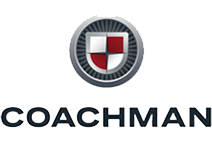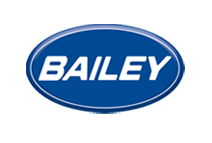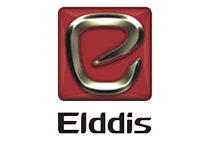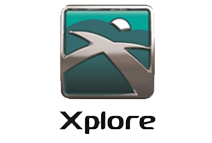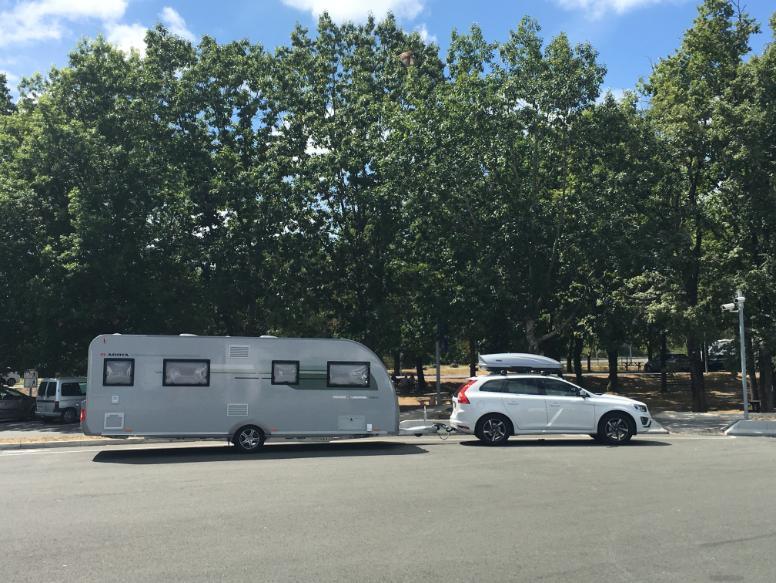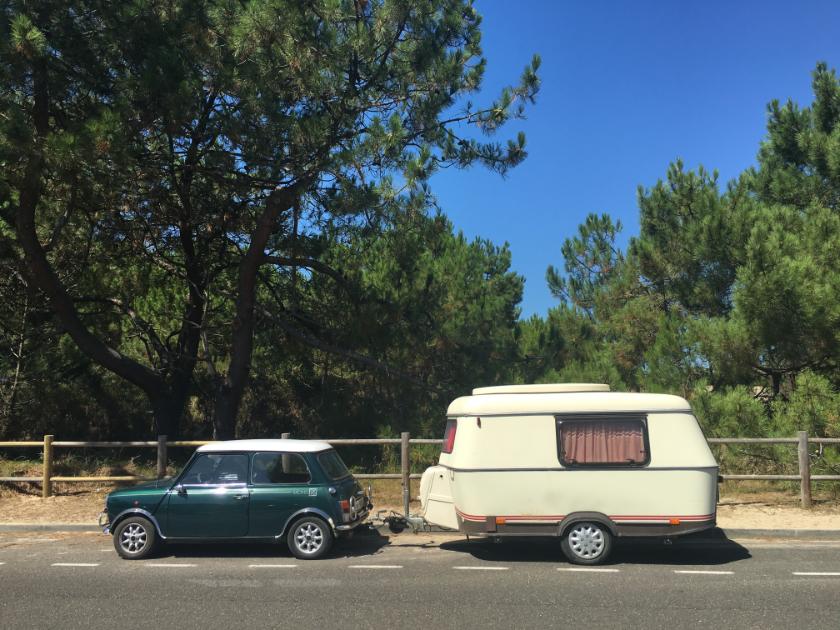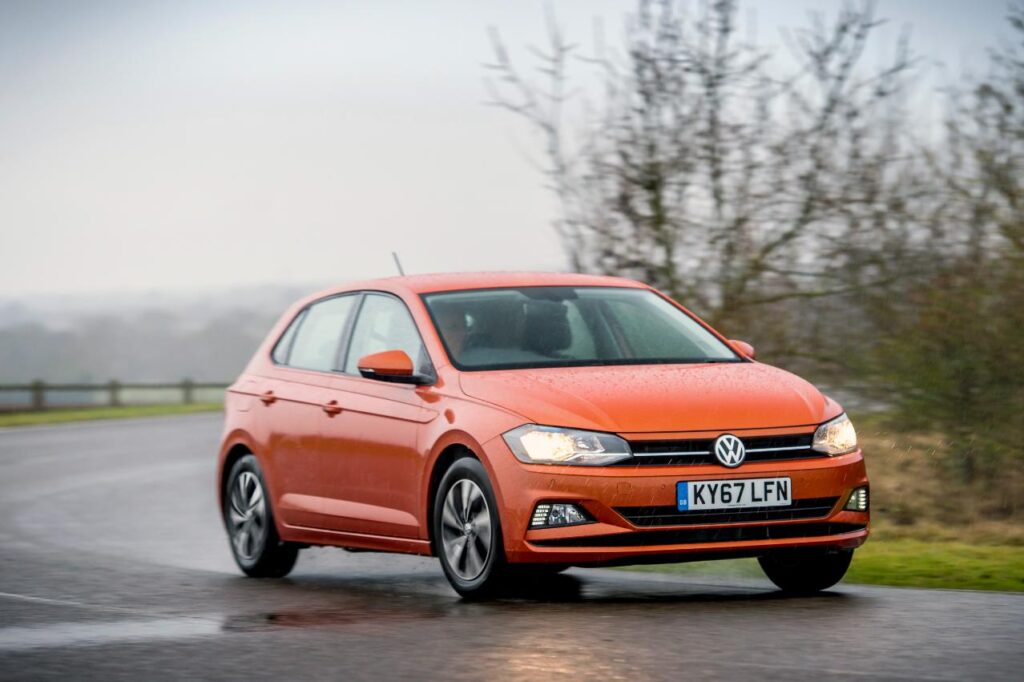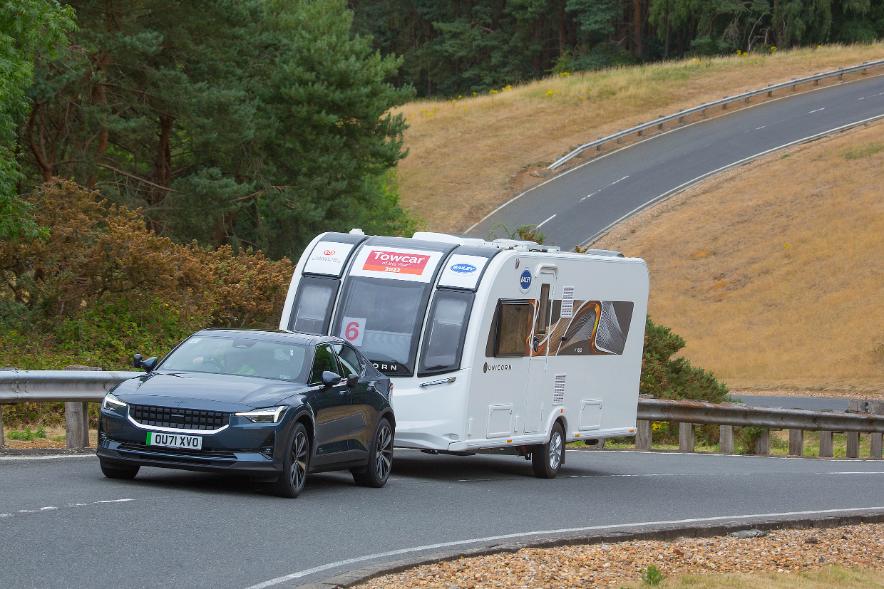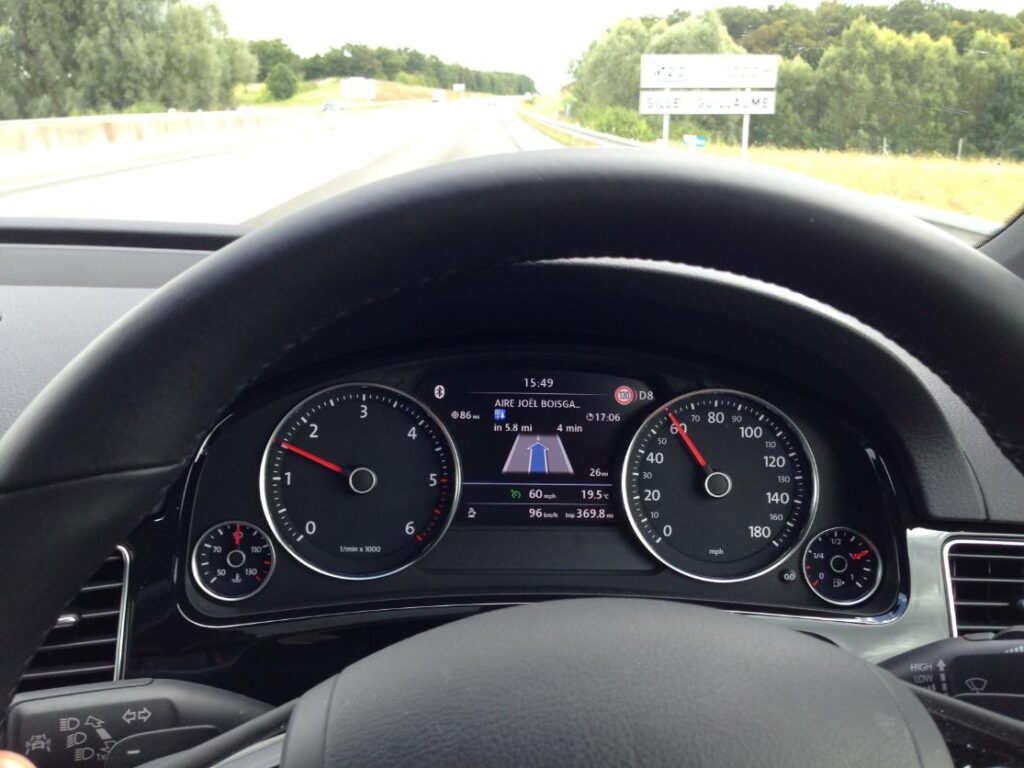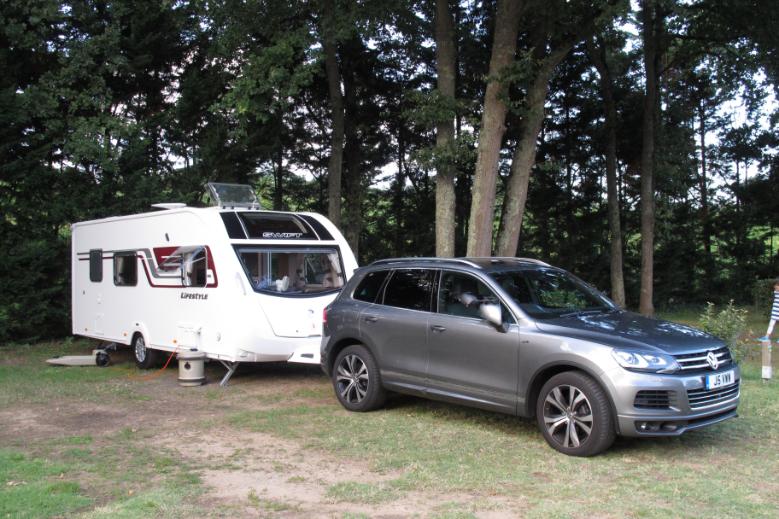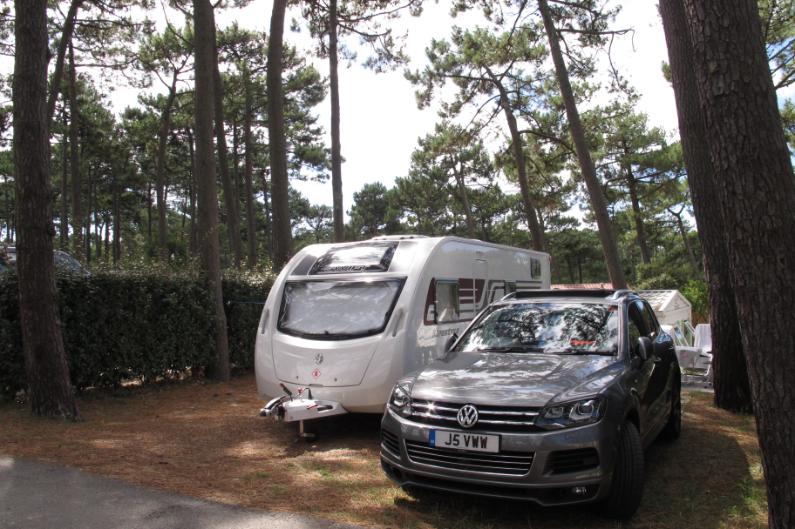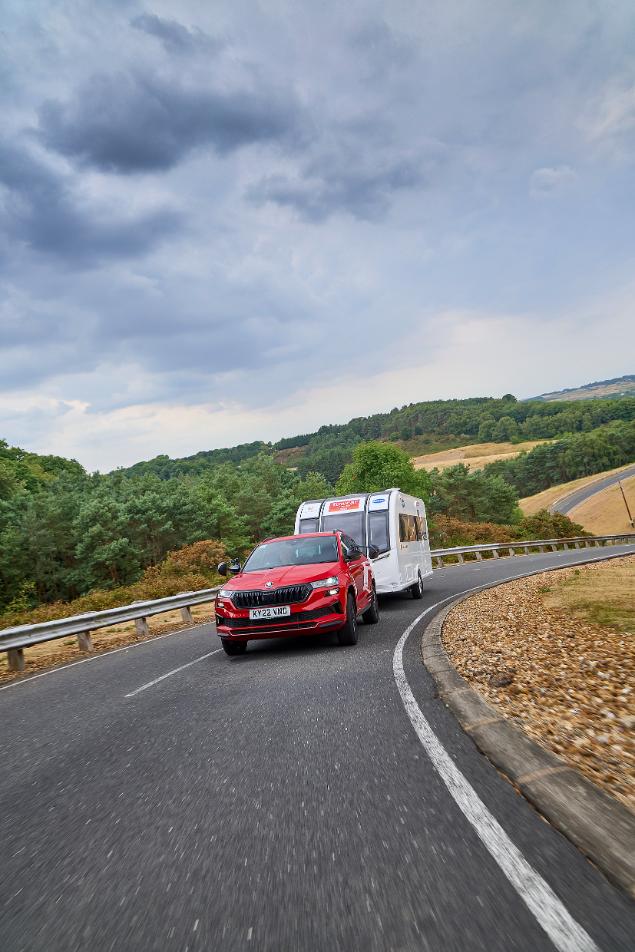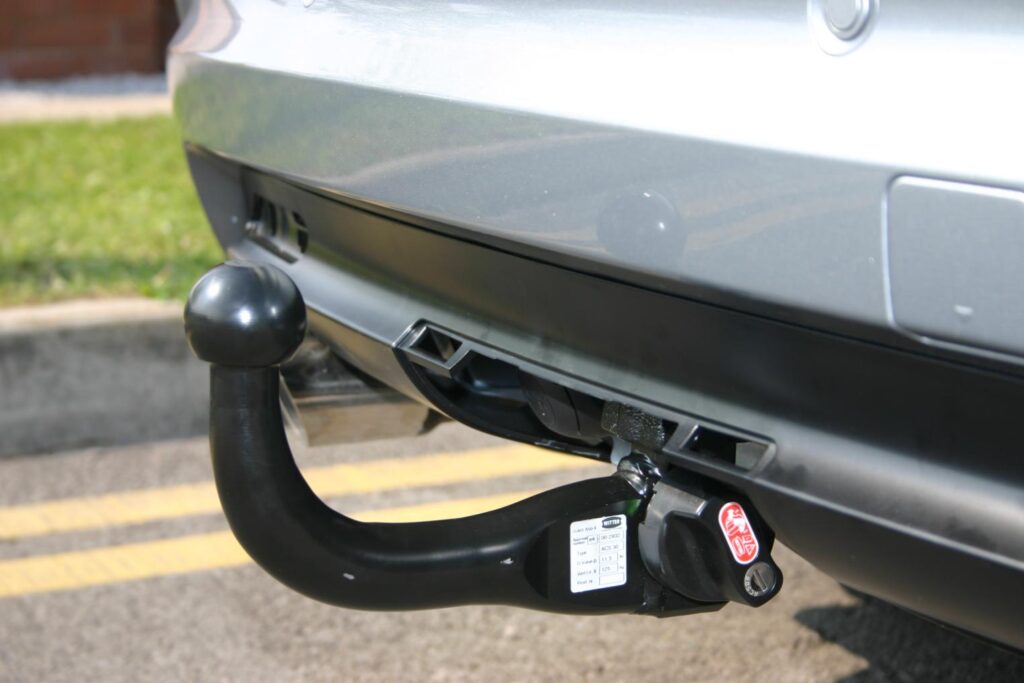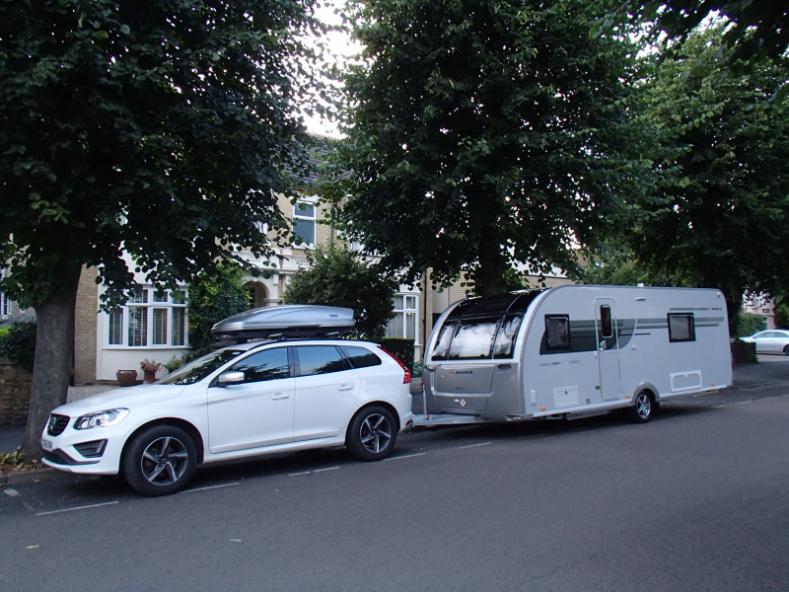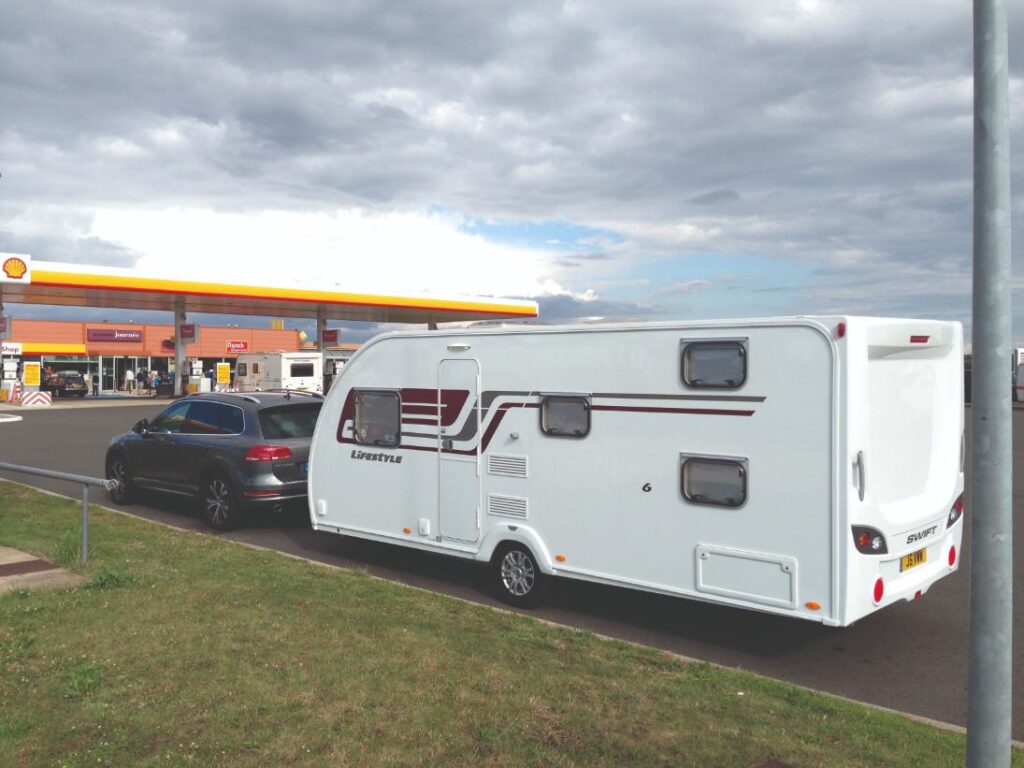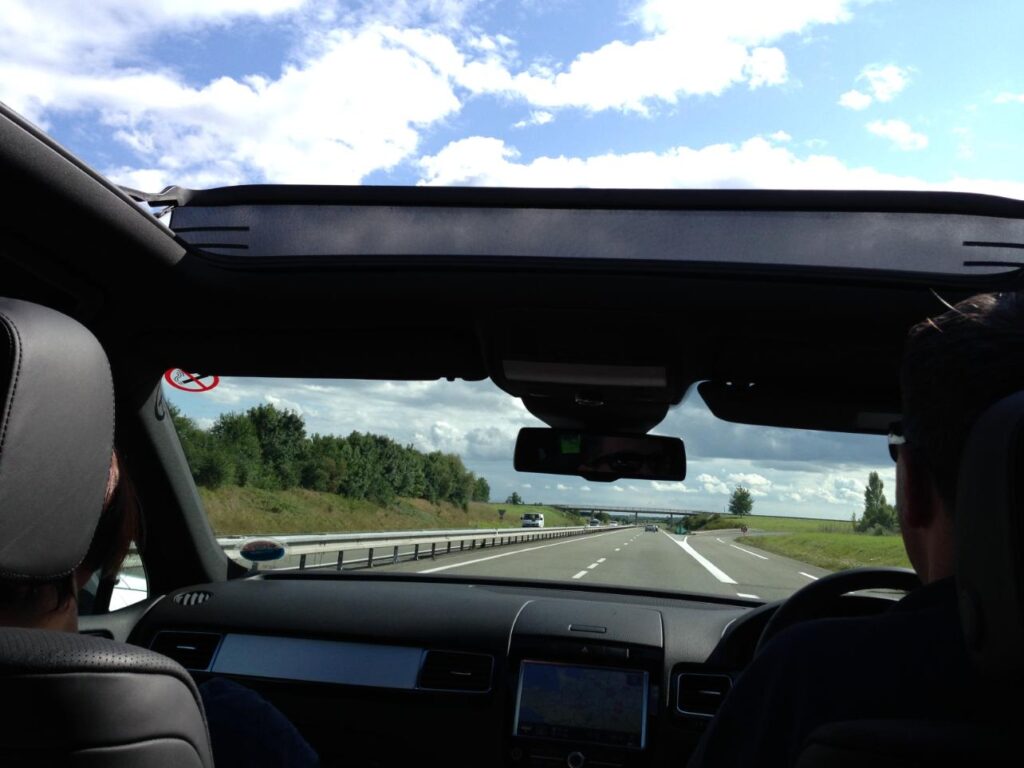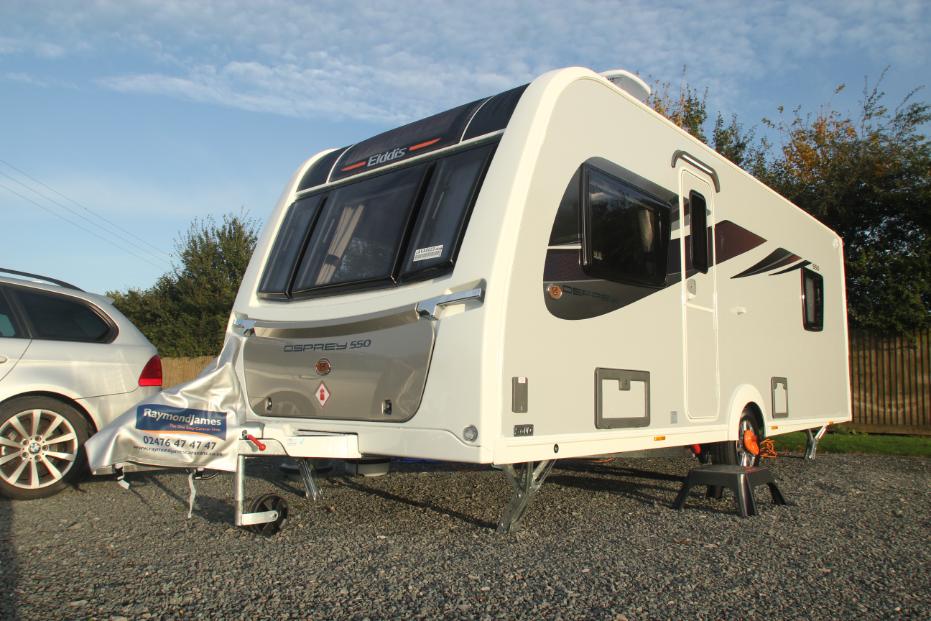Choosing the right tow car can be tricky. Raymond James Caravans explains all the factors you should consider, to avoid the pitfalls and the potholes!
One of the great benefits of caravanning over motorhoming is that, when you get to your destination, you have your lovely car to tootle around in, not a huge, rattly van.
Easy to manoeuvre and park, a good tow car is the secret to successful caravanning, and in this article we’ll explain all the main factors you should consider when making your choice.
Buy wisely and your tow car can also be your sensible ‘main car’ for everyday use… that’s everything from trips to Tesco and the tip, to cross-country dashes to see the extended family or dropping the kids off at swimming/dance/football.
These days there are plenty of options that deliver all this versatility, along with comfort, performance and, dare I say, ‘status’!
How difficult can it be? Let’s crack on…
The Weight of Your Tow Car: Why it Matters?
The weight of your car (in relation to your caravan) is THE most important factor in your choice of tow car, as it’s not just about practicality, but also legality.
You should always aim to have a tow car that’s heavier than your caravan, otherwise you may encounter situations where the ‘tail is wagging the dog’ as an overweight caravan proves difficult for the car to control.
Both major caravanning clubs and the National Caravan Council agree that novice tow car drivers shouldn’t tow a caravan that weighs more than 85% of the kerbweight of the vehicle towing it. This percentage increases to 100% once the driver has gained some significant towing experience. This thinking is explained in detail in our Caravan Weights Guide.
Put simply, the MTPLM weight of the caravan (found on the weightplate by the caravan’s door), should never exceed the kerbweight of the tow car (found on a weighplate in one of the front door jambs). If it does, and you were pulled over, the Police could fine you and demand that weight is removed from your caravan before you proceed
.
This simple graph gives you some examples of the acceptable weight limits:
Minimum Towcar Kerbweights’ Guide
| Caravan MTPLM | Min Kerbweight Novice (85%) | Min Kerbweight Experienced (100%) |
|---|---|---|
| 750kg | 882kg | 750kg |
| 1000kg | 1176kg | 1000kg |
| 1250kg | 1470kg | 1250kg |
| 1500kg | 1764kg | 1500kg |
| 1750kg | 2058kg | 1750kg |
| 2000kg | 2352kg | 2000kg |
So, as a big caravan needs a big tow car, it’s worth remembering that your initial purchase cost may well be higher, as will your insurance and your fuel bills.
Also, you may have to drive a large car around everyday which could be costly and impractical. However, with our current predilection for big SUVs, it may not be an issue for many.
How Tow Car Size Impacts Your Journey?
As heavy cars tend to be big cars, you may well end up needing a bigger vehicle than you would ideally have chosen.
Of course, you may well need a large spacious car, especially if you have kids and pets, and like to tour long distances.
Only you can find the right balance between the practicalities of everyday driving
The Role of Engine Size in a Successful Caravanning Experience
These days, most sensible caravanners focus on economy and torque when choosing the engine in their tow car. Modern tech means that two-litre diesel engines offer the perfect mix of power, smoothness and economy for towing most caravans.
For a family caravan, I recommend choosing a family car to tow with at least 150bhp-plus and 400Nm (295lb/ft) of torque – that’s all the power you need for speedy getaways, while the engine will be sitting in its powerband for efficient and quiet motorway cruising.
For the frugal, eco-friendly caravanner VW’s 1.0 TSI petrol engine is an absolute gem, especially when popped in a Polo. It’s power delivery and smoothness blew me away, and it’s only three cylinders!
Body Style: A Key Factor in Choosing the Ideal Tow Car
Caravanners tend to be practical people, so most commonly you’ll see them in estate cars, SUVs and even pick-ups, not just because of the weight, but also because of the ease of transporting lots of people in comfort, with lots of stuff.
I’m a big estate car fan, as I feel you get all the handling and performance benefits, and the fuel economy, of a road car, along with lots of storage space and versatility.
That said, many bigger SUVs have large boot spaces that are ideal for luggage or pets, while most saloon cars have vast boot spaces these days. Both also include the option to fold down the rear seats in a 60/40 split configuration.
Pick-up trucks, like Nissan’s Navara, Toyota’s Hilux and VW’s Amarok have become much more refined in recent years and make excellent tow cars, especially if you have one of the large, luxury caravans like the Buccaneer Barracuda, with its MTPLM of 1990kg.
Of course, pick-ups are also perfect for outdoor sports lovers, as you can easily throw mountain bikes, camping kit or fishing gear in the back, for a quick activity break.
Petrol, Diesel or Electric/Hybrid? Which Fuels Your Caravan Adventure Best?
Not many years back, the ideal power delivery for caravanning came from turbo-diesel engines, with their oodles of low-down torque, excellent efficiency and (back then) low-CO2, green credentials.
In recent times, the cat has been thrown well and truly amongst the pigeons, as diesels are now deemed planet killers and electric/plug in hybrid vehicles have become disruptors within the sector.
The basic requirements for a good tow car haven’t changed though, we all want plenty of torque at low revs for those nippy junction getaways, and we want fuel efficiency. If we also achieve low noise levels and smooth power delivery, they’re a bonus.
Modern diesels still do all this, but so do good petrol engines, even though their power-bands are much higher in the rev range.
I’ve driven perhaps 200 outfits on the road and in awards testing, and the only truly bad vehicle was the SsangYong Turismo; every other tow car did at least an average job, with most being very good or excellent.
Diesel engines do have a slight advantage, with their petrol equivalents not far behind and electric cars coming over the horizon…quickly…with their smooth rides, masses of torque, hefty kerb weights and low centres of gravity. The electric Tesla Model X weighs over 2459kg (that’s 344kg more than a Range Rover!), so it’s perfect for pulling big, luxury vans.
At the pumps, a litre of diesel was 15-20p more expensive until recently. Now that gap has closed, making them cheaper to run than their E10 petrol competitors, thanks to the extra miles you get per gallon.
I’d still say diesel is best for towing capacities, but in the next few years that may well change.
Gearbox Showdown: Automatic vs. Manual
Most experienced caravanners will tell you that automatic gearboxes are best for towing, and I have to agree. They literally take much of the legwork and elbow grease out of towing, and when it comes to tricky caravan manoeuvring, they can save your clutch a world of pain!
Modern automatics are also now as efficient as manual gearboxes, when it comes to fuel consumption. There’s nothing wrong with choosing a manual tow car, but life’s easier in an auto!
The Power of Four-Wheel Drive (4WD) in Tow Cars
Four-wheel drive adds weight, grip, and traction to tow cars, so is generally seen as a good thing by caravanners, even though 4x4s drink more fuel. This extra grip can be crucial on grass or muddy pitches and when towing on wet roads. All-wheel drive also adds to the kerbweight giving better stability… it’s a nice-to-have for those that enjoy basic CL and CS off-grid camping.
Unmasking the Best Brands in Tow Cars
In the tow car awards, certain brands seem to score consistently higher than their competitors.
The most outstanding performances, year after year come from the multitude of amazing cars in the VAG stable: VW, Skoda, Seat and Audi. These tow cars – and I’m talking ALL of them – share platforms, so there is a consistency right across all the brands.
This means that every model, from the titchy VW Polo 1.0 TSI to the beefy Audi Q7 performs brilliantly in tow-car testing, as confirmed by the never-ending accolades and awards. It could be a happy accident, but the consistency seems to suggest not.
Other serial award winners include Volvo, Nissan, Land Rover, Ford, BMW and, coming up on the outside rail, Hyundai.
The Importance of a Reliable Towbar
Is your proposed tow car compatible with a towbar… some cars aren’t. If it is, will you order the car with it fitted, or buy an aftermarket one from the likes of Witter Towbars?
Is Your Tow Car Roofbox-Compatible? Here’s Why it Matters
One reason I love my BMW 3-series Touring estate car are the handy roof-rails. These allow me to fit my Thule roofbox in minutes, and that gives just enough extra space so the kids don’t have to sit with some luggage on the back seat.
Roofboxes are excellent for getting weight (often up to 75kg) out of the caravan, and they’re great for stuff like beach gear that you’ll be using at your destination, keeping damp and sand out of the car.
Check if your tow car is roofbox compatible, but avoid universal-fit mounts and roofbars as they rarely seem to fit as securely as you’d like.
Wrapping Up: The Sum and Substance of Choosing the Ideal Tow Car
It is essential that your tow car also functions as a great everyday ride for most of the population who typically drive without a trailer or caravan in tow; it should be dependable, fuel-efficient, comfortable and the ideal size to easily navigate and park.
Putting all your eggs in the ‘towing basket’ might turn out to be an expensive or uncomfortable mistake, though, it has to be said, most modern cars are stunning all-rounders.
Our Curated List of Top-rated Tow Cars (New or Used)
Small
VW Polo 1.0 TSI
Citroën C4 Cactus
Medium
VW Golf
Skoda Octavia
Volvo XC40
Hyundai i30
Dacia Duster
Ford Focus
BMW 3 Series
Large
VW Touareg
BMW X5
Nissan Navara
VW Amarok
Skoda Superb
Volvo XC90
Volvo XC60
VW Arteon
BMW 5 series
VW Passat
Skoda Karoq
The Perfect Tow Car is Just Around the Corner
Choosing the perfect car capable of towing is a mix of science and personal preference. As our comprehensive guide has demonstrated, several factors contribute to this decision. While weight, size, engine size, body style, type of fuel, gearbox type, and brand play a crucial role, the compatibility with a towbar and a roofbox can also make a difference.
Whether you prefer a small, medium, or large vehicle, there are ample choices in each category that deliver versatility, comfort, performance, and economy.
Our caravan holidays are meant to be enjoyable and stress-free. The beauty of choosing a tow car is that it doesn’t have to be a hassle. In fact, the process can be enjoyable, especially when you have expert advice at your disposal.
Need More Caravan Advice? Contact Raymond James Caravans
Don’t hesitate to reach out to Raymond James Caravans for further advice on choosing the best tow car for your caravan holidays. With years of experience and a passion for caravanning, our team is always ready to support you with the advice and essentials for your caravanning needs.
Let us be your trusted partner as you embark on your next caravan adventure. Contact us today and make your caravanning dreams a reality!
The author
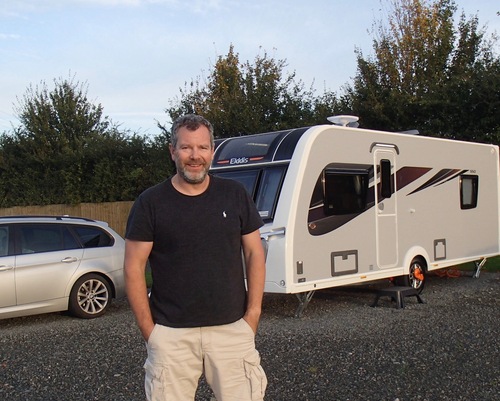 John Sootheran is a seasoned caravanner and motorhomer who previously edited Caravan magazine, and now writes for Britain’s best-selling caravan magazine, Practical Caravan, along with Practical Motorhome and the Camping & Caravanning Club magazines. He also works with a number of major caravanning brands.
John Sootheran is a seasoned caravanner and motorhomer who previously edited Caravan magazine, and now writes for Britain’s best-selling caravan magazine, Practical Caravan, along with Practical Motorhome and the Camping & Caravanning Club magazines. He also works with a number of major caravanning brands.

